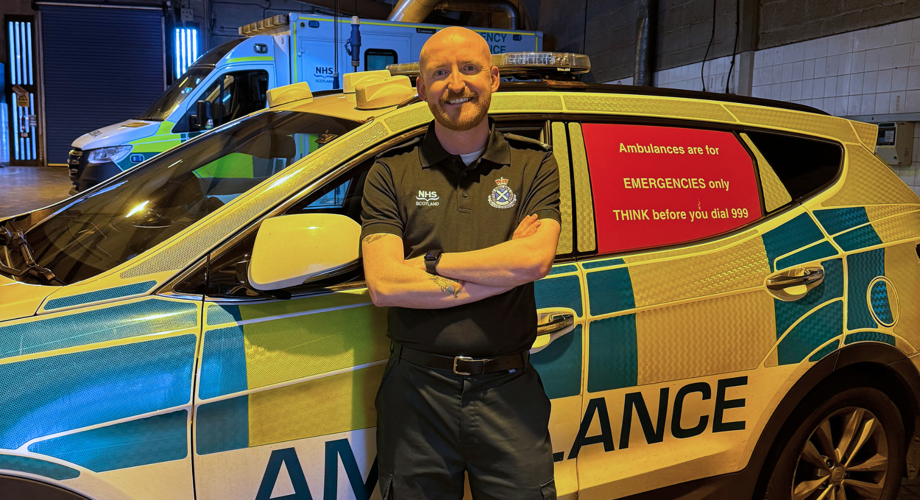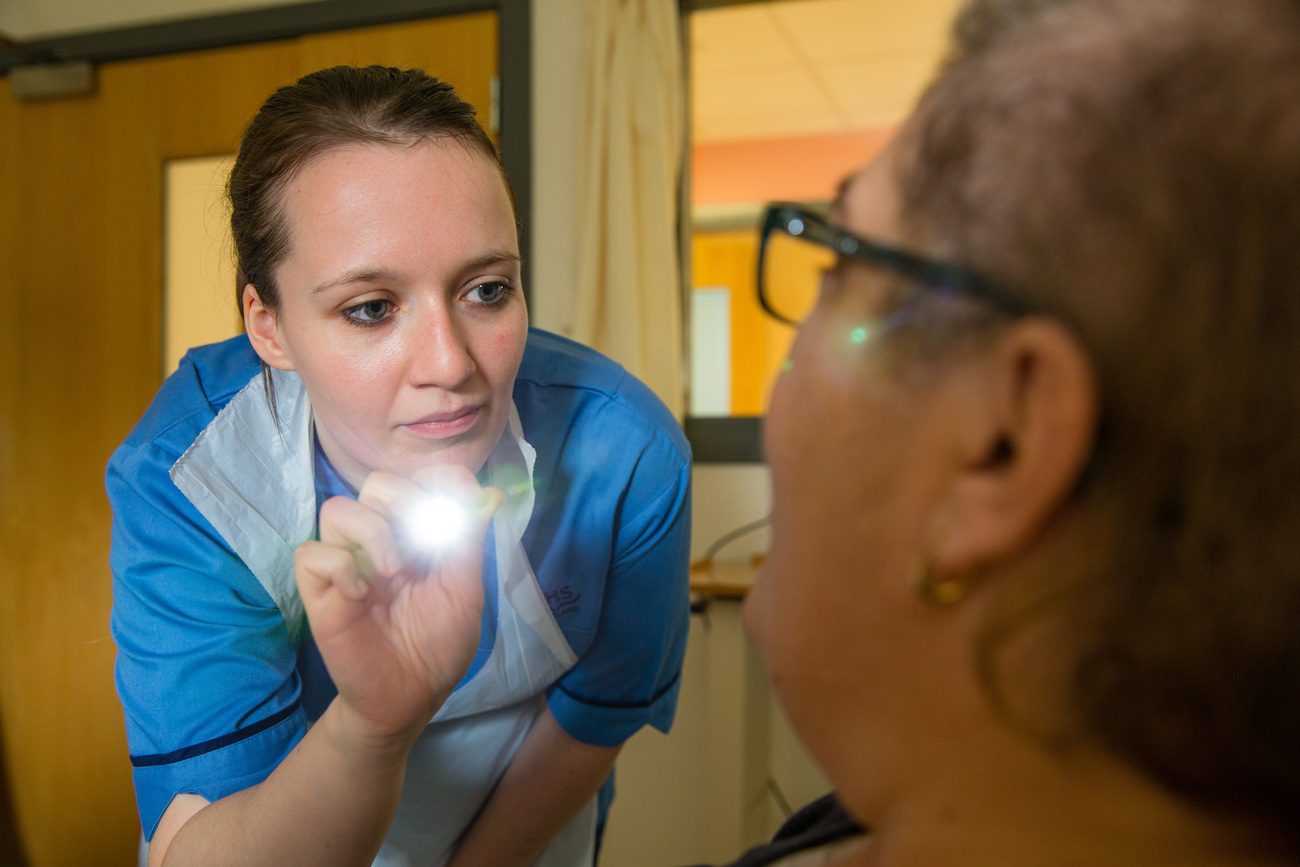
Martin Bryce
10 May 2024
•3 min read

Mike’s career story
This International Nurses’ Day, Mike shares his journey to becoming an advanced nurse practitioner in the Scottish Ambulance Service (SAS).
Who is Mike?
Mike is an advanced nurse practitioner who works in the urgent and primary care team at SAS. Mike started his career after graduating with a degree in adult nursing from the University of the West of Scotland. He shares with us his passion for volunteering and how it helped him to become a nurse.
Mike’s volunteering journey
At school, Mike studied a variety of subjects. He recommends studying Religious, Moral and Philosophical Studies (RMPS). He says that RMPS “highlighted a lot of the moral questions and ethics that can be experienced when working in healthcare.”
While still in school, he volunteered with a charity in Edinburgh. It advocates for people living with learning difficulties to help them access healthcare services. This first-hand experience of helping people in his community inspired Mike to consider a career in nursing.
After a year of working in hospitality, Mike applied to university to study adult nursing. Mike credits his experience at the charity with helping him develop a good understanding of working in healthcare. It led to him being offered a place in the adult nursing undergraduate degree programme.
While in university Mike continued his passion for volunteering with the Red Cross. He delivered first aid at events including concerts and festivals.
What’s it like being a nurse in the Scottish Ambulance Service
After graduation, Mike’s first job was as a registered adult nurse in a care home. In this role, he was responsible for providing care for elderly people with a range of medical needs. Following this, Mike moved to a prison healthcare service in Kilmarnock. He looked after patients with mental and physical health needs in a primary care setting with other nurses and GPs.
Mike then shifted his nursing career to work in an acute setting. He first worked as a staff nurse in a hospital emergency department. During his time there, he was supported to progress to take on leadership responsibilities.
Mike completed his training as an emergency nurse practitioner. This included a postgraduate programme in the management of minor injuries. He also did further training in the management of acute coronary syndromes.
Gaining experience and developing skills as an emergency nurse practitioner inspired Mike to apply for a role in SAS. He was confident this was something he would enjoy as he had worked alongside SAS colleagues in previous roles. He joined the team as a trainee. The training programme took 2 years to complete before Mike qualified as an advanced nurse practitioner.
When asked about his typical day at work, Mike says, “It’s very dependent on the day.” Mike works one day a week in a primary care setting. At the GP practice, he runs a clinic for acute patients in the morning before doing home visits for people who can’t leave their homes as easily.
On his other days, Mike triages 999 calls that aren’t deemed life-threatening. Mike and his team are responsible for assessing and developing a plan of care for the caller. With his advanced training, he has the skills to treat and prescribe people in their homes.
Critical thinking in healthcare settings
Having worked in acute settings for most of his career, Mike says that critical thinking is one of his most important skills. He adds, “When it comes to making serious decisions about people’s health and treatment plans, we need to be sure we are offering treatments that are realistic and beneficial”.
Mike always speaks with the people he is treating about alternative care plans. This helps to make sure that patients are aware of all the treatment options available to them. He stresses the importance of empowering people to make informed decisions about their care.
Mike’s advice for anyone thinking of a career in nursing
“Get as much experience as possible!” Volunteering, getting care setting experience, or working in your local community can help you gain transferable skills to study nursing and for your future nursing career.
